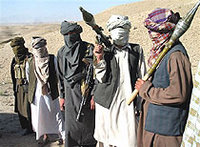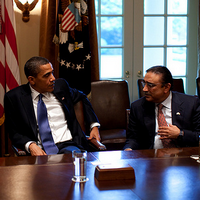Afghanistan Archive
Free Newsletter

Russia has disappointingly blocked for now a U.S. State Department initiative to build a network of U.S.-supported counternarcotics centers in Central Asia. In public, Russian officials denigrate the effectiveness of programs to interdict drug transportation through Eurasia and instead have favored concentrating international resources on fighting opium poppy cultivation in Afghanistan itself. But some Russian officials’ opposition to the initiative is driven by their desire to minimize the U.S. presence in Central Asia. Formally launched in June 2011 as a $4.1 million State Department program, the Central Asian Counternarcotics Initiative (CACI) aims to establish counternarcotics task forces in all five […]

Despite receiving little attention in the lengthy written testimony (.pdf) presented to the Senate and House intelligence committees’ recent hearings on threats to the United States, the question of the viability of reaching a peace agreement with the Taliban was raised repeatedly in the discusions at the two public sessions. Many in Congress are rightly concerned about the situation in Afghanistan and any nascent peace process. So it is important to understand the specific risks involved in negotiating with the Taliban before Congress’ last annual hearing on worldwide threats to national security takes place Thursday in the Senate Armed Services […]
In the weeks after the attacks of Sept. 11, 2001, the Central Intelligence Agency and the United States Special Operations Command sent intelligence officers and special operations forces to Afghanistan, making them the first American boots on the ground. Now, with the official end of the Iraq War and the upcoming withdrawal of American troops from Afghanistan, it is becoming clear that the first ones in will be the last ones out. As the U.S. military begins to shift away from combat missions in Afghanistan over the coming two years, instead focusing on advising Afghan forces, CIA paramilitary operations officers […]

On Nov. 26, NATO helicopters killed 26 Pakistani soldiers at Pakistan’s Salala checkpoint, mistakenly believing them to be Taliban militants. The incident provoked a furious reaction from Pakistan’s military and civilian leadership as well as from the population at large. In what was already shaping up to be one of the worst years ever for U.S.-Pakistan relations, the Salala incident represented the final straw. Pakistan immediately shut down NATO’s supply lines, ordered an end to U.S. drone strikes in Pakistani territory and boycotted the Bonn Conference on Afghan reconciliation. Shortly thereafter, Pakistan’s Parliamentary Committee on National Security (PCNS) began a […]
